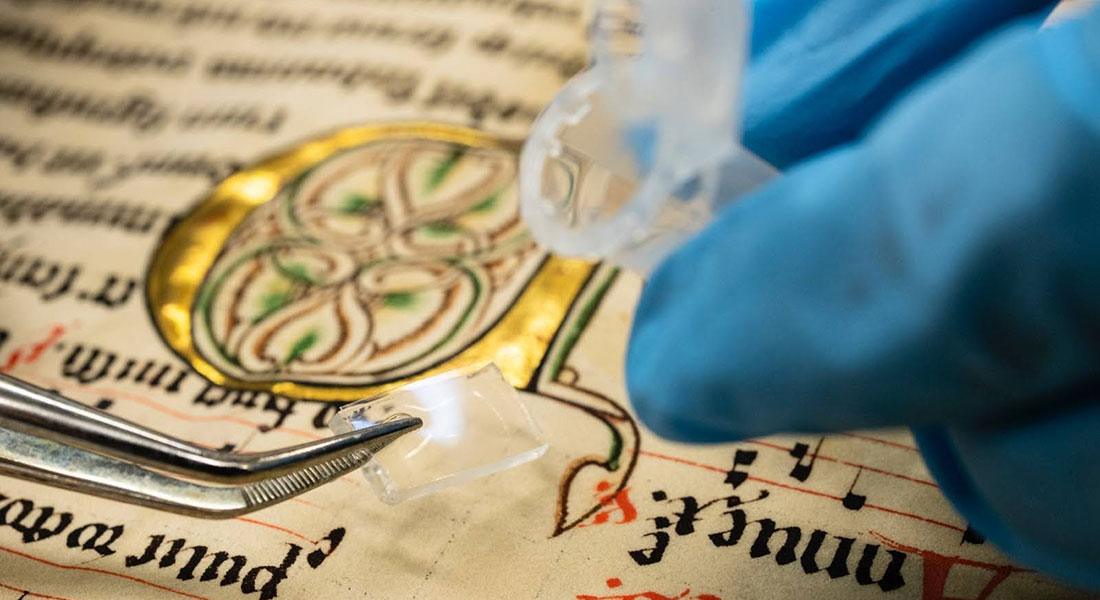Research project on medieval intellectual culture awarded €13 million Synergy Grant
Thanks to a generous ERC Synergy Grant, experts in history, literature, medieval handwriting and bio-codicology from Nordic Universities will explore medieval knowledge networks the coming six years. Matthew Collins, who is Niels Bohr Professor at the Globe Institute and member of the steering committee of the UCPH School of Archaeology, is one of four key team members in the project, which will be titled CODICUM.

Medieval books played a vital role in shaping European history, carrying rituals, stories, and ideas as they were read, copied, and shared across regions. Today, they offer scholars insights into historical trade, craftsmanship, and the religious, social, and intellectual networks that connected Europe. Less than 10% of the European manuscript corpus survives, with an even smaller fraction in Scandinavia.
CODICUM is the name of a new groundbreaking research project that combines traditional humanities approaches with cutting-edge biomolecular analysis of fragments from medieval books, written on animal skin. The project will investigate approximately 50,000 medieval Latin book fragments preserved in Nordic collections—one of Europe’s largest and most understudied archives of medieval book culture. CODICUM has received a €13 million Synergy Grant from the ERC.
"These fragments represent an extraordinary treasure trove that can transform our understanding of how books and ideas circulated in medieval Europe. With this funding we will be able to lift fragment studies to a new level and dramatically increase our knowledge about medieval books and the learned networks using them," says Professor Åslag Ommundsen from the University of Bergen, who is the recipient of the Synergy Grant along with three Nordic research partners.
Professor Matthew Collins from the Globe Institute, who is an expert on ancient proteins, will play a key role in the project along with experts in literature, paleography, and history.
“A unique feature of this project is the use of new techniques to trace the geographic origins of manuscript materials and identify previously unknown connections between religious and intellectual centres. Using biomolecular methods, we can now extract DNA and protein information from parchment to determine where animals were raised and how manuscripts were produced,” Professor Collins says and adds:
"This project exemplifies how the University of Copenhagen is leading the way in bridging science and humanities through innovative technological approaches to cultural heritage research. As is probably evident from the nature of the project, this is a contribution from the new School of Archaeology which has been launched between, SUND, HUM and TEOL.”
“By analysing both the texts and materials of these fragments, we hope to unlock a new understanding of how Northern Europe was integrated into broader European intellectual culture” concludes Professor Tuomas Heikkilä
CODICUM brings together
From left to right:
- Professor Tuomas Heikkilä (University of Helsinki) - History
- Professor Åslaug Ommundsen (University of Bergen) - Palaeography
- Professor Lars Boje Mortensen (University of Southern Denmark) - Literature
- Professor Matthew Collins — University of Copenhagen) - Bio-codicology
Contact
Niels Bohr Professor Matthew Collins
Globe Institute
University of Copenhagen
Email: matthew@palaeome.org
